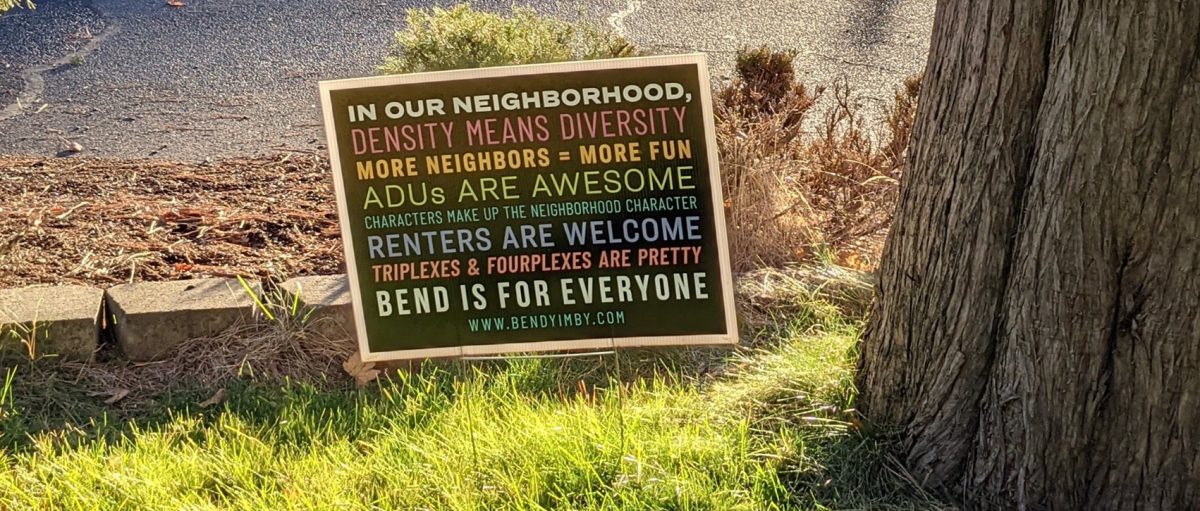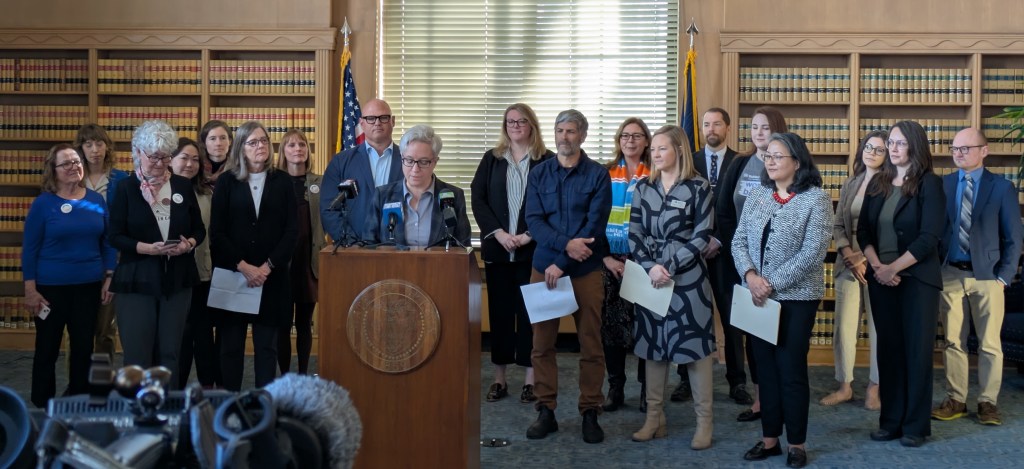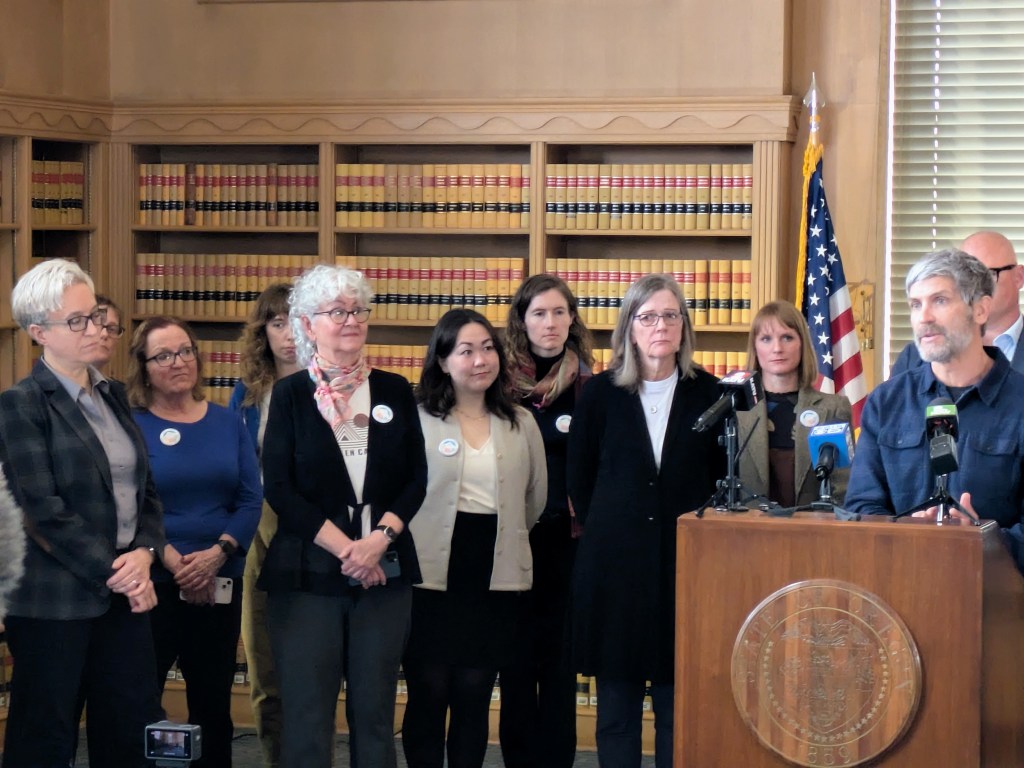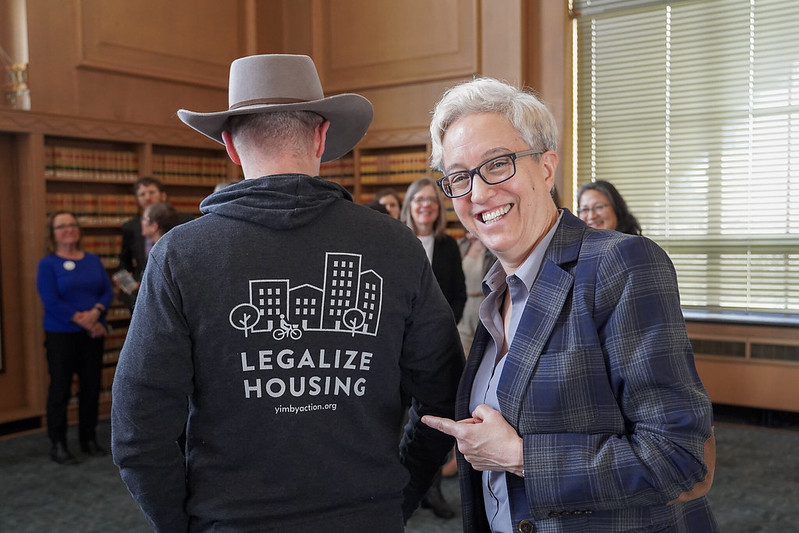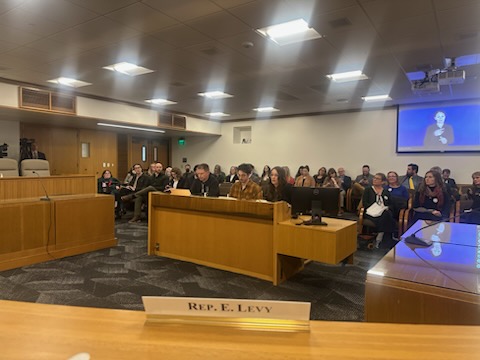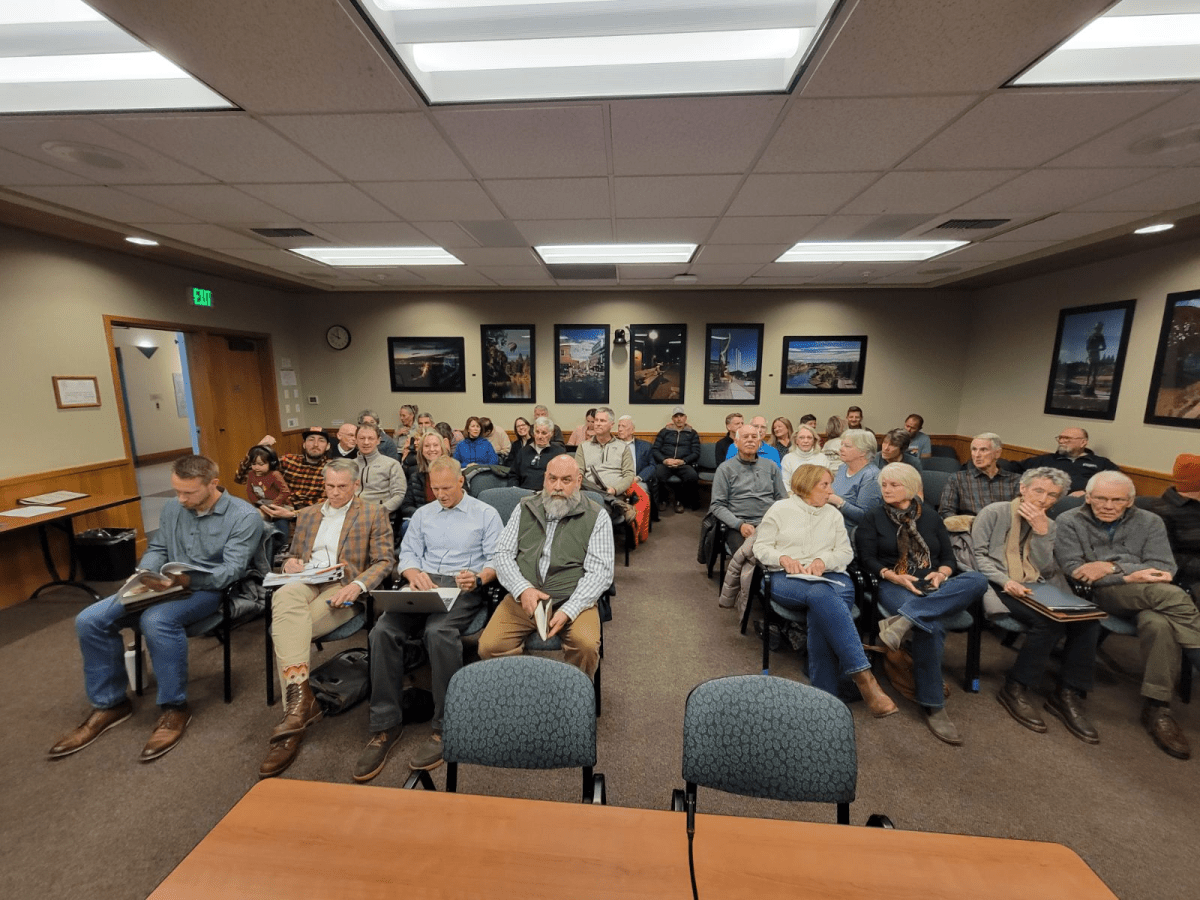2025 was a tough year in a lot of ways, but YIMBYs in Bend and Oregon had some big housing wins that are worth celebrating.
The bad news first:
Bend YIMBY is not a group that runs on money – we are all about people power, and this year saw two of our original members move to another city in Oregon, so I wanted to take a moment to appreciate all the help and advice Kathryn Olney and Jim Roberts have provided over the years. Their wisdom and experience has been invaluable to the growth and success of our group.


Thank you for everything!
On to the good news:
We had a great trip to Salem this spring (thank you, Corie from COLW!) in support of HB 2138, which ended up passing:
Michael Andersen from Sightline talks about what the bill does:
There were several other bills that Bend and Oregon YIMBYs supported:
- HB3746 which makes some changes to condo defect liability rules, which will hopefully spur the production of more condos.
- HB2258 makes easier to build infill and middle housing on land zoned for residential development via pre-approved plans.
- SB684 is a revolving loan fund for mixed-income housing.
There were some other things that we would have liked to see that didn’t pass. Hopefully, with your support, they will be revisited in the future. Often it takes a few tries for a bill to get through, which can be kind of frustrating, but such is the nature of politics.
Another big, but very under the radar win was the OHNA rulemaking. Once again we’ll turn to Michael to let him explain why this is a big deal. Bend YIMBYs wrote in to support this.
A local, Bend policy win we’re proud to be part of is making it possible to build “detached townhomes”:
In Bend, we are starting to see rents stabilize because of the number of homes being built, which is what the concept of “supply and demand” would predict:
We’re also starting to see more “middle housing” under construction, thanks to past housing reforms spearheaded by Tina Kotek:
Indeed, none of these things would have happened without our elected officials, from Governor Kotek, to State Senator Anthony Broadman, State Representatives Emerson Levy and Jason Kropf, and in Bend, Mayor Melanie Kebler and our city council. A huge thank you to all of them for making these things possible! And another huge thank you to everyone who has taken the time to participate in Bend YIMBY, whether it’s having a beer at one of our events, writing to support a policy, showing up to a hearing to support housing, or sharing our articles and ideas on line.

